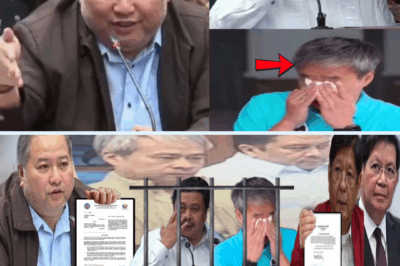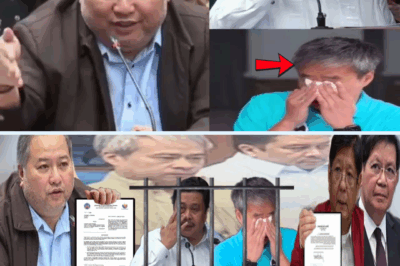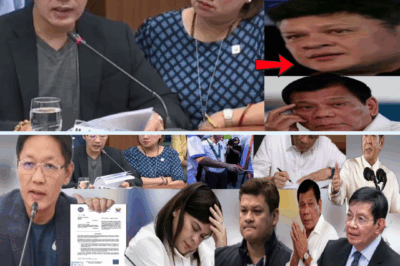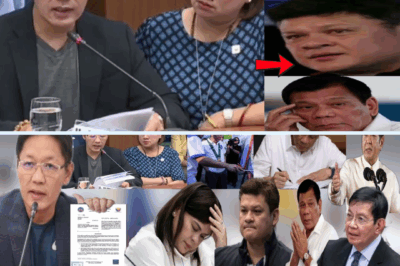Full Article: New PNP Chief Nartatez on Replacing Torre, Alleged Internal Conflict
MANILA, Philippines — In a surprising and swift shift in the leadership of the Philippine National Police, Lt. Gen. Jose Melencio Nartatez Jr. assumed command of the PNP on August 26, 2025, replacing outgoing Chief Nicolas Torre III. The sudden replacement, which took many by surprise, underscores ongoing tensions within the institution, sparked by conflicting executive orders, institutional oversight, and a brewing leadership friction over control and direction.
A Sudden Turnover
Torre’s removal was enacted through an order by President Ferdinand Marcos Jr., signed by Executive Secretary Lucas Bersamin, which took effect immediately. The order effectively relieved General Nicolas Torre III of his position atop the 228,000-strong national police force. Torre was not present at the turnover ceremony but conveyed his acknowledgment of the directive to Interior Secretary Jonvic Remulla.
Lt. Gen. Jose Melencio Nartatez Jr. stepped in as Officer-in-Charge (OIC) during a surprise turnover ceremony at Camp Crame, officiated by Secretary Remulla. Soon after, press outlets confirmed Nartatez’s formal appointment, underscoring the president’s intent to reaffirm institutional authority within the PNP .
The Sparks of Internal Conflict
The leadership shake-up traces back to an earlier attempt by Torre to reorganize senior police command. On August 6, Torres issued orders reassigning 13 high-ranking PNP officials, including Nartatez, who was serving as Deputy Chief for Administration (the second-highest PNP post). In his restructuring plan, Nartatez was to swap roles with Lt. Gen. Bernard Banac, Commander of the Western Mindanao police.
The National Police Commission (Napolcom), under Interior Secretary Remulla, intervened. On August 14, the commission issued a resolution nullifying Torre’s reassignment order and reinstating the affected officials—including Nartatez—to their prior posts. Napolcom then initiated its own revamp of key positions across regional offices .
Torre’s disregard for the Napolcom directive elevated tensions. The commission’s legal authority to administer and supervise the PNP left his decision in violation of institutional rules. In response, several PNPA classes and graduates supported Torre, but institutional pressure mounted.
Remulla characterized Torre’s removal as a necessary step to uphold accountability and the rule of law within the national security apparatus. “This was not an easy choice, but it was made in the national interest,” he declared. He further emphasized that the institutional structure must prevail over any personal or political influence.
Nartatez’s Profile and Vision
Jose Melencio C. Nartatez Jr., born March 19, 1971, in Santa, Ilocos Sur, is a career police officer with a strong academic and operational background. A distinguished alumnus of the Philippine Military Academy’s Tanglaw-Diwa Class of 1992, he also holds a Master’s in Public Administration.
He has held several key posts within the PNP—including head of the NCRPO, regional director for Calabarzon, Ilocos Norte police chief, and roles in finance, comptrollership, intelligence, the Special Action Force, and the CIDG. He became Deputy Chief for Administration in October 2024.
Nartatez vowed continuity of Torre’s high-profile initiatives, including the much-publicized five-minute response campaign. He emphasized proactive crime prevention and a drive to ensure Filipinos’ safety and peace in public spaces. Nartatez underscored the PNP’s operational discipline and adherence to institutional mandates, noting, “As a fine Filipino public servant … we follow [orders] especially, this is a general order” .
Institutional Integrity Over Personal Allegiance
Interior Secretary Remulla delivered the official rationale behind Torre’s dismissal: a commitment to respect Napolcom’s legal authority. The move was framed not as punitive, but as preserving institutional integrity. Torre is free from criminal or administrative charges and was even offered the option of retirement. There are indications he may be placed in another government role where his service and experience could still be utilized .
Remulla further noted that Torre’s four-star general rank remains held by him until he decides to retire—a policy issue that Nartatez will need to navigate if Torre chooses to retain his rank while remaining outside the PNP’s top post
A Short Tenure, A Lasting Impact
General Nicolas Torre’s term as PNP chief lasted just 85 days, ending on August 26, 2025. His sudden tenure brought impactful initiatives—such as the emergency “five-minute response” plan and bold actions against prominent figures like ex-President Rodrigo Duterte and religious leader Apollo Quiboloy—but it also exposed vulnerabilities in the PNP’s leadership consensus and institutional alignment
Torre is particularly notable as the first chief to hail from the Philippine National Police Academy (PNPA), breaking the long-standing tradition of chiefs being graduates of the PMA. He also drew unusually public attention, including a charity boxing match with Davao City acting mayor Sebastian Duterte on July 27—a match Torre “won by default” after Duterte failed to appear .
Looking Ahead: Stability or Further Tensions?
Gen. Nartatez’s immediate challenge is to unify the PNP amidst potential fractures. He has promised continuity, security, and stability. Meanwhile, the commission has directed him to collaborate with DILG leadership to produce a comprehensive national citizen-refuge strategy within one month to enhance police presence and public safety across the country .
Considering Torre’s continued influence—both in rank and possibly in government posts—the test for Nartatez will be managing authority and preserving coherence within the chain of command. Transparent operations, disciplined leadership, and institutional compliance will be his watchwords.
Conclusion
The leadership transition in the Philippine National Police from Nicolas Torre III to Jose Melencio Nartatez Jr. signals more than a change of face—it highlights a constitutional tug-of-war between individual agency and institutional order. Torre’s brief but impactful tenure laid groundwork that Nartatez now inherits, but he also carries the weight of reconciling internal rifts and restoring cohesive command.
The outcome of this transition will be closely watched—not only for its implications on national security but as a test case of institutional resilience in a democracy putting rule of law above personal clout.
News
Alcantara’s shocking testimony shakes Villanueva and Estrada—dark secrets surface, power trembles, and the nation demands the hidden truth.
Breaking News: Villanueva and Estrada Under Fire as Henry Alcantara Testifies In a stunning twist that has sent shockwaves across…
Villanueva and Estrada shaken—Alcantara’s explosive testimony reveals hidden secrets, sparking fear, betrayal, and a nation demanding shocking answers.
Breaking News: Villanueva and Estrada Under Fire as Henry Alcantara Testifies In a stunning twist that has sent shockwaves across…
Villanueva, Estrada cornered—Alcantara’s shocking testimony drops bombshell secrets, power crumbles, and the nation braces for explosive truth.
Breaking News: Villanueva and Estrada Under Fire as Henry Alcantara Testifies In a stunning twist that has sent shockwaves across…
Discaya’s bombshell rocks the Dutertes—secrets explode, power crumbles, and the nation holds its breath for the truth.
Breaking News: Duterte Family Faces Political Firestorm as Discaya Testifies In a political drama that has gripped the Philippines like…
Duterte empire on the brink—Discaya breaks silence, explosive secrets revealed, power shaken, and the nation waits breathlessly.
Breaking News: Duterte Family Faces Political Firestorm as Discaya Testifies In a political drama that has gripped the Philippines like…
Discaya’s shocking testimony ignites firestorm—Duterte dynasty shaken, secrets exposed, and a nation demands answers to chilling allegations.
Breaking News: Duterte Family Faces Political Firestorm as Discaya Testifies In a political drama that has gripped the Philippines like…
End of content
No more pages to load










